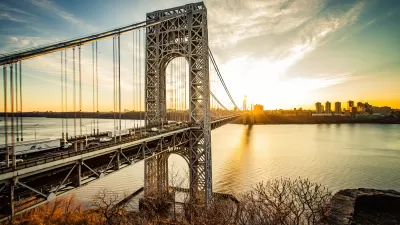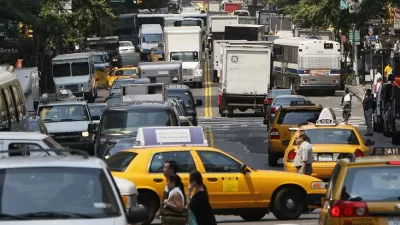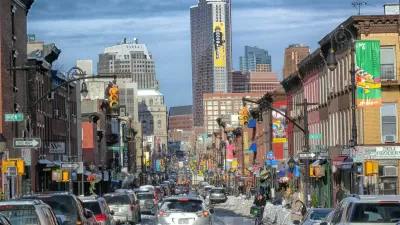East 69th Street is mobilizing to halt the Metropolitan Transportation Authority's plan to add subway entrances on their tony block - needed to handle displaced crowd flows from adding required ADA elevators at the 68th Street entrances.
The Lexington Ave. #6 line is one of New York's busiest. The Americans with Disabilities Act requires MTA to install elevators at the 68th St./Hunter College stop, which in turn results in the need to construct new entrances/exits on 69th St.
"Some New Yorkers can only dream of having a subway train ferry them straight to their front door, but residents of East 69th Street say the entrances have no place on what they believe to be one of the prettiest streets around. They have formed a block association and hired lawyers, and they plan to tap an engineering firm to conduct transportation and environmental assessments that will likely show that the entrances can and should go elsewhere, or perhaps are not needed at all."
Cara Buckley writes that much of the block's argument against the subway entrances is that their "block is just too pretty" for them. She also notes that "residents of a building on East 86th Street sued the transit authority a year ago in an effort to stop the construction of entrances to the coming Second Avenue subway outside their front doors," which was eventually dismissed.
FULL STORY: Subway Entrances? Not on Our Block

Planetizen Federal Action Tracker
A weekly monitor of how Trump’s orders and actions are impacting planners and planning in America.

Maui's Vacation Rental Debate Turns Ugly
Verbal attacks, misinformation campaigns and fistfights plague a high-stakes debate to convert thousands of vacation rentals into long-term housing.

Restaurant Patios Were a Pandemic Win — Why Were They so Hard to Keep?
Social distancing requirements and changes in travel patterns prompted cities to pilot new uses for street and sidewalk space. Then it got complicated.

In California Battle of Housing vs. Environment, Housing Just Won
A new state law significantly limits the power of CEQA, an environmental review law that served as a powerful tool for blocking new development.

Boulder Eliminates Parking Minimums Citywide
Officials estimate the cost of building a single underground parking space at up to $100,000.

Orange County, Florida Adopts Largest US “Sprawl Repair” Code
The ‘Orange Code’ seeks to rectify decades of sprawl-inducing, car-oriented development.
Urban Design for Planners 1: Software Tools
This six-course series explores essential urban design concepts using open source software and equips planners with the tools they need to participate fully in the urban design process.
Planning for Universal Design
Learn the tools for implementing Universal Design in planning regulations.
Heyer Gruel & Associates PA
JM Goldson LLC
Custer County Colorado
City of Camden Redevelopment Agency
City of Astoria
Transportation Research & Education Center (TREC) at Portland State University
Jefferson Parish Government
Camden Redevelopment Agency
City of Claremont





























